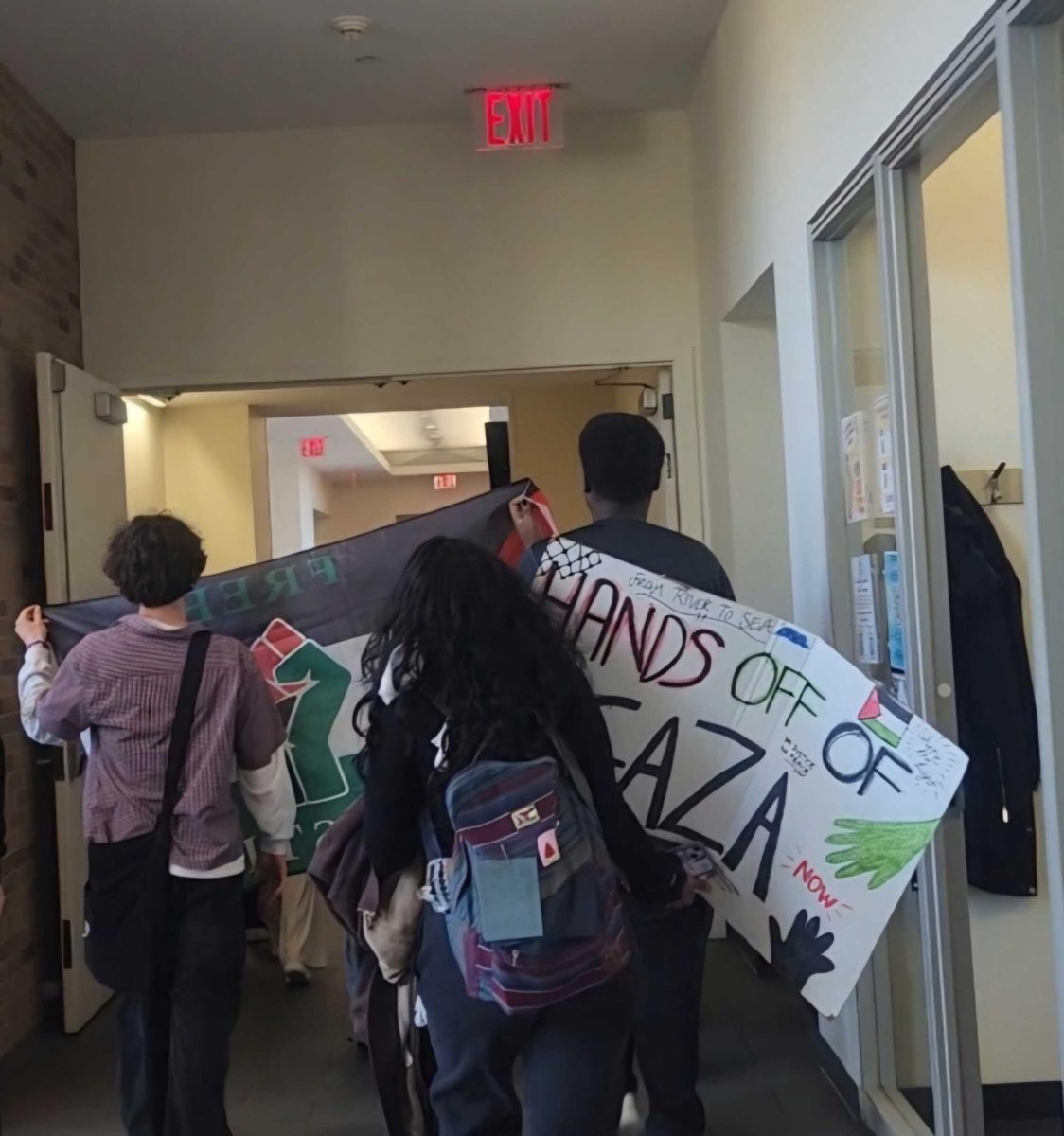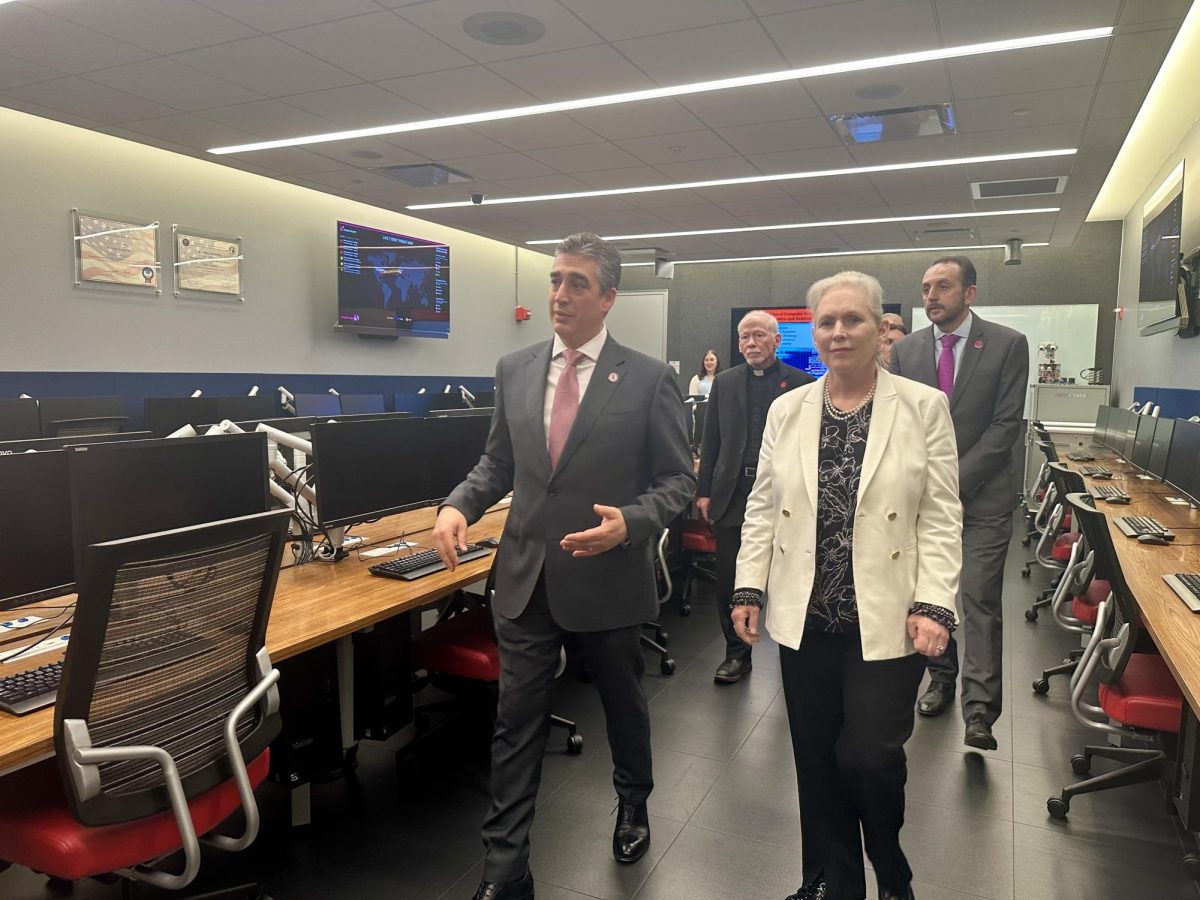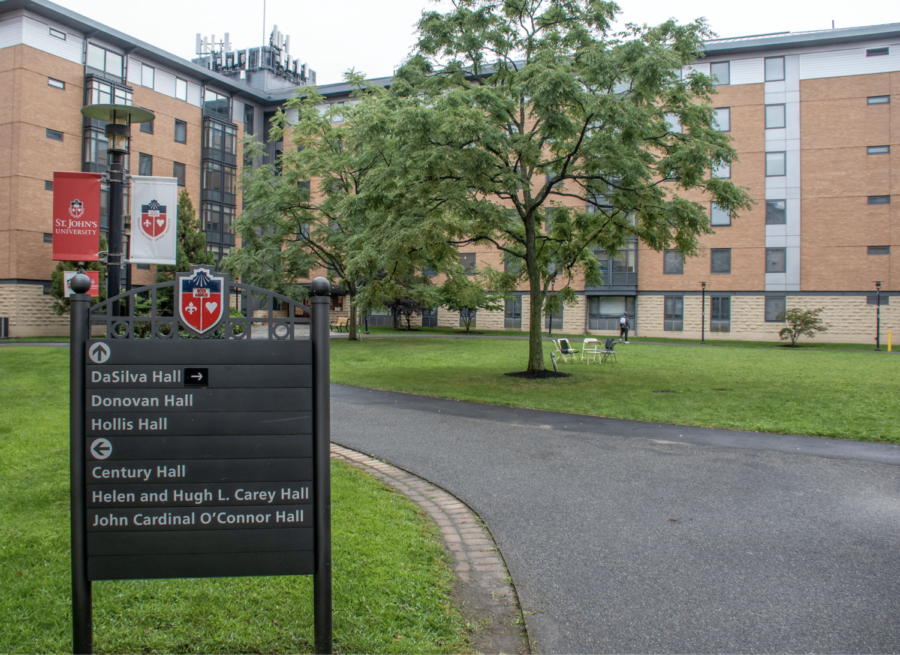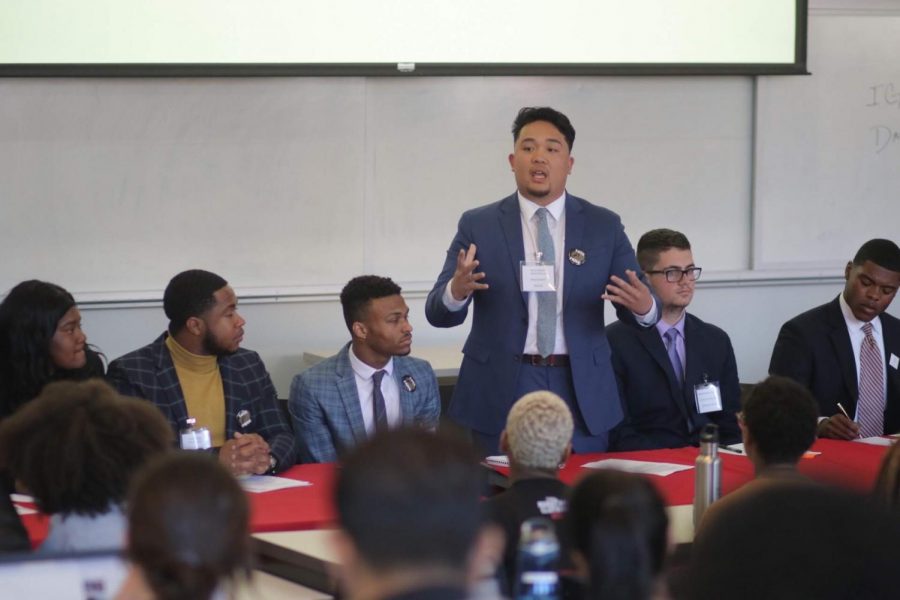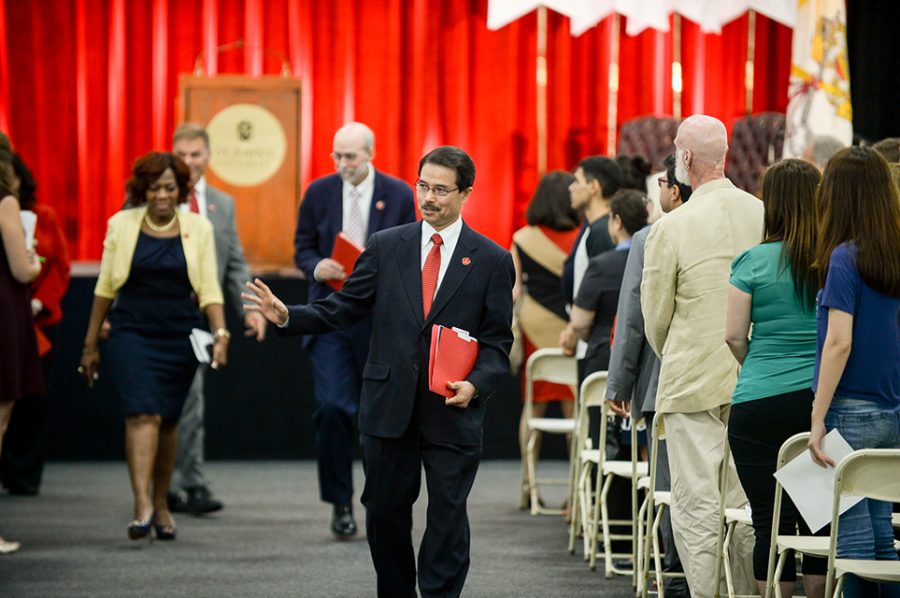New York Times columnist and Pulitzer Prize winning author Nicholas Kristof, and his wife Sheryl WuDunn, visited St. John’s on March 12 to discuss their book Half the Sky, which tackles the issue of women’s rights around the world. The two sat down with the Torch for an interview before their speech.
Torch: What made you decide to dedicate an entire book to the topic?
Nicholas Kristof: In a 800-word column you can have a whack at it here or there but we really wanted to attack it more systematically and in a way that we couldn’t in a 800 word column. So then once we had thought about the book, we thought, well, TV documentary, facebook game, this kind of thing too.
T: Did the reporting for the book differ from the reporting you do for your columns?
NK: It was special reporting just for the book. We were looking for the very best stories and the most telling stories that would eliminate the way when you educate girls, when you empower women, you really get leverage to achieve far reaching changes in the world.
T: How was the title for the book chosen?
NK: At the end of the day, we were wrestling with a lot of different titles, and we were looking for something lyrical and something that’s more positive, a little more uplifting so we reached for Chinese proverb.
Sheryl WuDunn: I wrote a chapter on women in China and in that I referred to Mao Zedong, his saying, women hold up half the sky and of course, when Mao said it at the time, he said it for certain, possibly manipulative reasons, but in any case, the result is, that he did elevate the status of women. That is one of the positive legacies that he’s left. He’s done a lot of other things sort to speak but this was one of the most positive legacies that he left, that it’s not unusual in China for women to hold jobs, it’s almost expected and that’s not true for the rest of the developing world and women have a very strong position in that family household and yes, there’s a lot of bad things that are going on in China as well but if I were to be born a woman in a developing world, I’d much rather it be in China than in other parts of the world.
T: At any time during the research for the book, did you find yourselves overwhelmed by what you were experiencing?
NK: Some of the reporting was heartbreaking but it’s also true that side by side with the worst of humanity, you end up seeing the very best and so we saw some really terrible atrocities and some enormous heartbreak but also some people showing unbelievable courage, altruism, resilience, fortitude, in ways that enable you to come back from red light districts in Cambodia or killing fields in Darfur and actually, to some degree, even feel better about the human capacity for good as well as the human capacity for evil. They really tend to exist side-by-side.
SW: What I think is more insidious about this is that it haunts you because it’s not like it’s oh my god it’s overwhelming but what’s haunting is that these people no one cares about and they’re sitting, they’re just existing and no one knows about them, that in itself is such a sad and deplorable and it just draws you in. It’s a situation that it’s so sad and deplorable that you just feel compelled to try and do something about. That’s actually also why we ended up writing Half the Sky is that because we have covered a lot of things, but this is stuff that kept coming back, it’s like, wow I really think this is something that we need to tell the world about and when we realized that it was something that was more global, not just in the places we had been foreign correspondents that’s when we realized, hey, this is worth telling.
T: Do you feel that people are becoming more aware about these issues?
NK: It does seem to me that there’s been real progress that globally, there’s much more attention in getting girls in school, that globally and in the U.S., there’s much more attention to sex trafficking. Sex trafficking is just becoming a much more prominent issue at home and abroad. Some of the things we can track do show progress, the number of women dying in childbirth has fallen by almost half in a decade, the number of children who aren’t going to elementary school has fallen by tens and millions and in elementary school now, there are as many girls as boys going to school. But those metrics give you a little bit of a gage in it, kind of more anecdotally or is where I really feel that the greatest progress is underway.

















